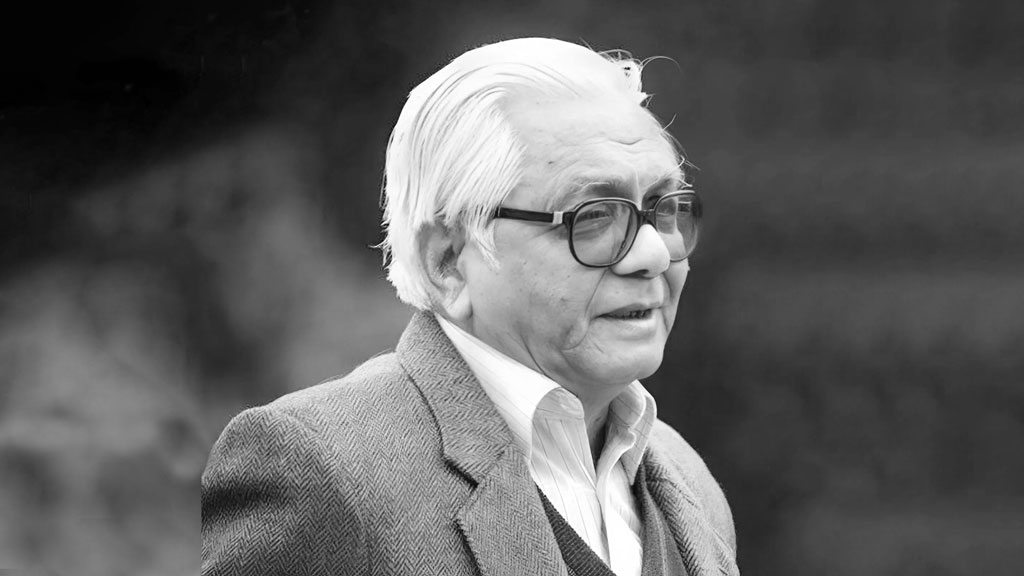News Flash

DHAKA, Sept 8, 2025 (BSS) - Sheikh Hasina stayed in the country’s power by controlling elections. Besides, by abusing state power, she had taken over the electoral system and in fact her relationship with the people had been completely severed.
Badruddin Umar, eminent intellectual, writer, researcher and Jatiya Mukti Council president who died recently, told this in his last statement given as a witness to the investigation officer (IO) in the case against Sheikh Hasina and three others at the International Crimes Tribunal (ICT) on charges of crimes against humanity.
Talking to the journalists, ICT Prosecutor Gazi MH Tamim said,”Late Badruddin Umar was an important witness in Sheikh Hasina's case . . . This intellectual could not come to the tribunal and give evidence, but he gave his testimony to the investigating officer in this case.”
Referring to the section 19 (2) of the International Crimes Tribunal Act, prosecutor Gazi Tamim said if a witness dies after giving evidence to the investigating officer, the tribunal can accept the testimony on the application of the prosecution.
“Sheikh Hasina has manipulated every election since she assumed the office from 2009 until 2024. This was possible as she could successfully establish her control over every state’s institutions, starting from the Election Commission (EC) to the police administration and bureaucracy as well,” the prosecutor quoted Badruddin Umar as saying.
Researcher Badruddin said Sheikh Hasina had decided from the beginning that she would control the election. If she wanted to do that, it would not be possible to have a Caretaker Government. However, in 1996, she had protested and brought amendments for a Caretaker Government.
“Deposed Prime Minister Hasina was the one who abolished the Caretaker Government after assuming state power in 2009, as she realized that they would not be able to win the next time if there were fair polls. So, to win the elections, she had to bring everything under her control,” he added.
Quoting the Umar’s statement, the prosecutor said Sheikh Hasina controlled the administration in two ways - firstly by giving bribes, money and privileges, and secondly by threatening and intimidating anyone. She, however, established this control by 2009. Subsequently she held the elections in 2014, 2018 and 2024.
“In 2014, none was allowed to enter the voting centre. In 2018, the vote was held at night before the voting day. The same thing happened in 2024. She won even after holding elections in this way but they had no public support at all,” Omar said at his statement.
Sheikh Hasina had not only rigged the elections, but also brutally suppressed her political opponents with resorting to inhumane torture and harassments to prevent any political party from moving effectively, he said.
“Many people had been arrested and detained for years without any reason. Besides, a torture cell called ‘Ayna Ghar’ had been created, which did not exist even during the rule of Sheikh Mujib,” he said in the statement to the ICT IO.
In his statement, Badruddin Umar further said that the 2024 mass uprising was an exceptional event not only in Bangladesh but also in the entire Indian subcontinent. A mass uprising of such strength and scale has never been in India or Pakistan even.
Citing the historical events in 1952, 1969, 1990, the eminent writer said Bangladesh itself is a “country of mass uprisings.” However, among these uprisings, the 2024 mass uprising was the most different and most transformative that compelled the then regime to flee the country with all their cohorts as there was no movements of any party leaders and activists at that time,
“Sheikh Hasina was forced to leave the country in the 2024 mass uprising. Not only her, but her cabinet, the party's central leaders, and even grassroots leaders and activists also fled the country. Collapse of such a massive party, panic, and hiding incidents had never happened in the history of Bangladesh. In Syria or any other countries, such an organized party flight has not been seen even after the fall of a dictatorship,” Badruddin Umar mentioned in his testimony.
A symbolic image is appropriate to illustrate the depth of this revolution. From the day after Sheikh Hasina's escape, ordinary people all over the country began to tear down statues and murals of Sheikh Mujib. No one gave any orders, yet this had happened, he added.
Badruddin Umar breathed his last at Bangladesh Specialized Hospital at 10:05 am on September 7. He was 94. He had been suffering from various old-aged complications for a long time.